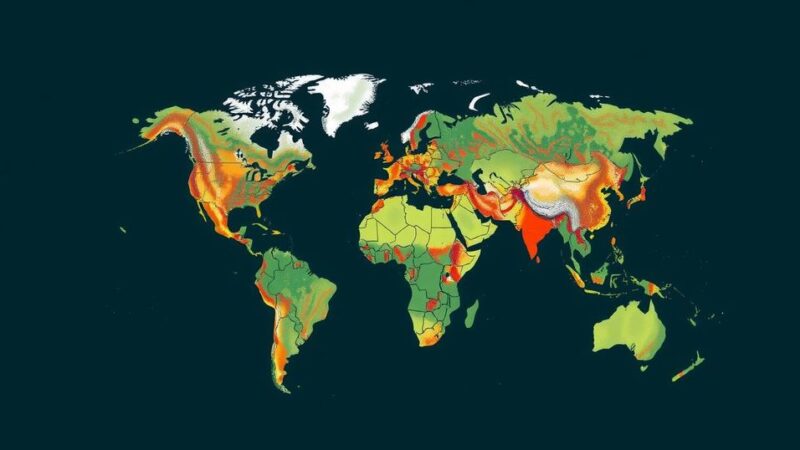President Xi Jinping of China is visiting Brazil to enhance bilateral relations with President Lula da Silva, focusing on trade and cooperation. Amid global instability and a potential confrontational stance from the U.S. under Trump, both nations seek to assert their leadership in the Global South. The discussion will likely revolve around increasing Brazil’s exports of value-added goods and addressing economic imbalances.
President Xi Jinping of China is set to visit Brazil to enhance bilateral relations with President Luiz Inacio Lula da Silva. This visit follows Xi’s positive engagements at the G20 and APEC summits amid the backdrop of Donald Trump’s anticipated return to the White House. Both leaders aim to fortify China-Brazil ties, as their nations strive to assert their roles as leaders of the Global South amid increasing global instability, as echoed in Xi’s remarks regarding a “collective rise” of the Global South. Furthermore, trade relations take center stage, with China being Brazil’s largest trading partner, accounting for over $160 billion in bilateral commerce last year. Brazil aims to boost its exports of value-added products, contrasting with its current emphasis on primary commodities such as soybeans. Lula’s administration has sought to balance relations with both China and the United States, as exemplified by the recent visit to Beijing by Vice President Geraldo Alckmin, which signaled potential collaboration under China’s Belt and Road Initiative. The geopolitical climate complicates these discussions, particularly as China’s investment in Latin America draws scrutiny from U.S. officials. Lula is expected to discuss how to adjust their economic relationship to benefit Brazilian enterprises and reinforce Brazil’s status as a global player, particularly during an era where the U.S. presence in Latin America is perceived to be contracting. Analysts suggest that China must honor its commitments to support Brazil’s re-industrialization efforts to address concerns related to trade imbalances.
The meeting between Presidents Xi and Lula represents a significant moment in international relations, particularly focusing on the evolving dynamics between China, Brazil, and the United States. The importance of both countries is heightened as they seek to assert their positions in the Global South amid contentious geopolitical tensions. China’s growing influence in Latin America, particularly through trade and infrastructure investments, juxtaposes with the U.S. approach, which now calls for caution regarding relations with Chinese interests. Understanding these broader implications provides context for the bilateral discussions and potential agreements during Xi’s visit to Brazil. As Brazil commemorates 50 years of diplomatic relations with China, it highlights the historical context that has shaped current economic and political engagements, emphasizing the necessity for Brazil to balance its foreign relations strategically.
In summary, President Xi Jinping’s upcoming visit to Brazil constitutes a pivotal opportunity for both nations to strengthen bilateral ties as they celebrate half a century of diplomatic relations. The discussions will center around expanding trade opportunities, particularly in value-added products, while also navigating the complexities imposed by the shifting geopolitical landscape with the return of Trump. Both leaders are poised to address mutual concerns and aspirations that will shape their nations’ futures and influence regional dynamics in the Global South.
Original Source: www.voanews.com

